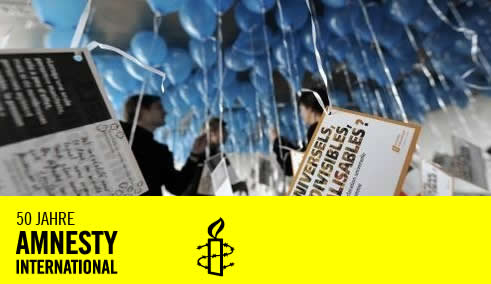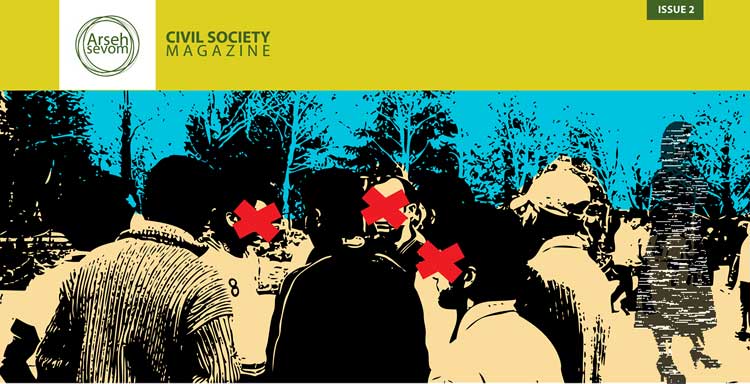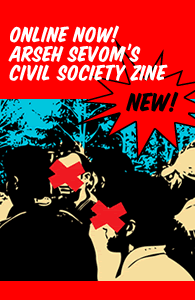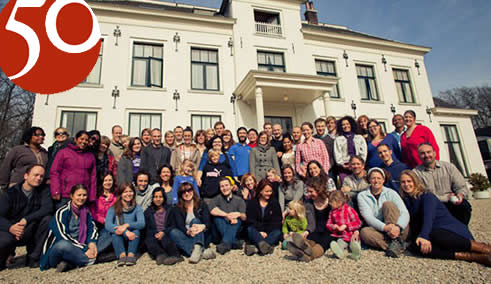
The Accidental Leader Questions for Amsterdam50
November 19, 2011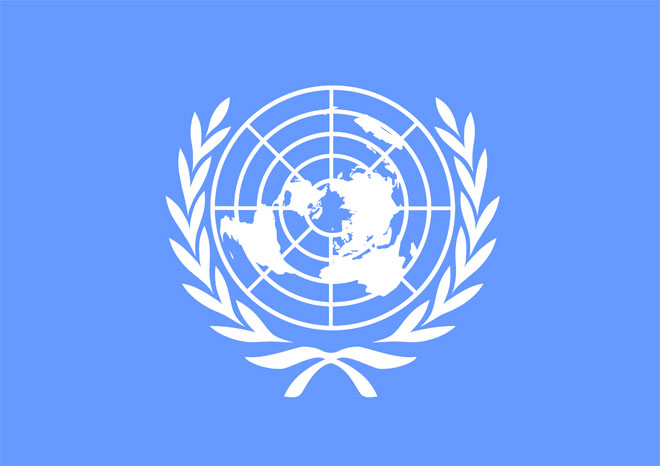
UN Calls for Access for Special Rapporteur on Human Rights in Iran
November 22, 2011Arseh Sevom Interview with Antonia Bertschinger
Background of Amnesty International
Fifty years ago, a British lawyer named Peter Benenson was outraged by the arrest in Portugal of two students. Their crime was toasting to freedom, a word which was forbidden at the time when the nation was under dictatorial rule.
Benenson was shocked and published an appeal in a newspaper on the 28th of May 1961, calling for people to write to the Portuguese government to plea for the release of these two students. This appeal became the foundation for the organization that came to be known as Amnesty, International.
For the first ten years Amnesty was primarily focused on letter-writing campaigns for prisoners of conscience. Later, the group began focusing on topics such as abolition of the death penalty and torture. As they grew in members, they began to expand their work to address women’s rights, the rights of indigenous people, and the rights of sexual minorities. Today Amnesty works for all the human rights enshrined in the universal declaration of human rights.
Amnesty is currently present in 51 countries and has over three million members who are mostly volunteers. They still write letters and raise awareness about human rights.
Arseh Sevom spoke with Antonia Bertschinger, a member of the management team of the Swiss section of Amnesty International and the Iran expert for the Swiss section.
Amnesty International Switzerland has over 50 people working in four offices and 45,000 members. Antonia is responsible for the active volunteers. Her team supports people who want to work for human rights.
Interview
AS: You and your team support the volunteer activists?
AB: Yes, that’s right. We try to help them with structures. If they are organized into groups, we try to keep them in a good group and do some capacity building in project management and of course in content. For each Amnesty campaign or area of ongoing work we do units of human rights training so they can learn more about the death penalty, or about poverty, or about slums, or about women’s rights, or whatever it is. We also have these e-activism possibilities. We are at the beginning now, we have a facebook page with over 12,000 members. We have an SMS strand where people receive messages and by answering can give a signature or give money.
AS: Can you expand a bit more on the work you do?
AB: In the early times, the volunteers’ work consisted in letter writing for prisoners of conscience. The international secretariat in London did all the research on the prisoners and then would assign three people to each group. These three would usually be one from the West, one from the East — because this was in the time of the cold war, of course — and the third one from a non-aligned country. Many of these groups came into existence in the 60s and 70s and many still exist. Their members are between 70 and 80 years old now. Those people are obviously not used to working online, so they have a different source of distribution. We have urgent actions and letters against forgetting, which these groups participate in. The older groups choose the prisoners they want to work with and distribute letters to others and then post them.
There are other groups who have come into existence later who do other things such as street theater, discussions, and supporting any campaigns. For instance, we have a violence against women campaign in Nicaragua, and we are all drawing little butterflies which we will send there to support the campaign, as a sign of solidarity with Nicaraguan women’s organizations. You have young people’s groups who are going into schools and getting the children to draw the butterflies.
It’s not easy to find new members. It’s a difficulty of generations. I mentioned older groups who have been doing this for forty years and do not want to change their way of doing things, and the young people think there’s nothing more boring than writing a letter, especially on paper. They don’t even understand the concept of sending a letter through the post.
We have to try to support all of them, like sending the paper letters for the older people and giving good ideas to the younger people.
AS: How is Amnesty working to bridge the gap of generations and appeal to younger people?
AB: The aging of Amnesty’s volunteers is not simply a problem of the Swiss section. It is a problem all over, especially Western Europe. There is a generation change. Also, we are always asking ourselves which kinds of actions have the most impact. We know that the letter-writing campaigns are still very effective. If someone is arrested and in danger of being tortured and 300 letters arrive at the prison, it helps them. This is something we still encourage people to do.
At the same time, we have had successes with electronic signatures. We don’t know if this is the kind of activism we want to focus on the future. Should we concentrate on this? Or should we get people to write letters on paper? This is something we always need to ask ourselves. Maybe it depends on which country you are working on, and it is not easy.
Our organization, which is a worldwide one, is trying to grow in the South, like in Africa and Asia and South America. It is also important that in the countries where many human rights violations appear we have a strong presence. This is becoming more and more important. I should say we are strong, but trying to find our way in the 21st century.
AS: Can you tell us about your work with Iran?
AB: Amnesty has a great, professional team in London working on Iran. They prepare the reports, prisoner files, campaigns and materials for campaigns and then individual sections are called upon to implement those actions. The Swiss section is organized so that country work is done with volunteer experts. I am one of those experts, focusing on Iran, in addition to my paid work as head of the activist support department. I am working to build a network right now. Many people in Switzerland are interested in Iran and would like to do something.
I would encourage anyone working on Iran to send as many letters as they can to Iran. Iran is a country with a lot of urgent actions. Every other week, or every week there is a case where we are called on to send letters to protect someone from torture, or ask for their release, or stop an execution.
There is one problem, many people who want to work on Iran here are Iranians and they do not want to work in their own names. They want to continue to travel to Iran and once they sign a letter and send it to the judiciary or the Iranian embassy in Switzerland, they will, of course, be on a list, and they won’t be able to go back. So I am encouraging them to find Swiss friends who can send the letters for them or allow them to use their names. Once the network has grown, and we find common interests within the network we might try to arrange discussions or film screenings to raise awareness among the Swiss public about issues in Iran and how they can be influenced. This is one part of the work.
Another part is being called on as an expert. I am called on for interviews or to speak at side events at UN conferences in Geneva. This is always done in collaboration with the team in London. Of course, I am in constant contact with them.
I also help with translations for the Iran news on the Iran page on our Swiss Amnesty website.
AS: I love the idea of having Iranians outside the country find friends to sign letters for them. How did you personally become involved in human rights work?
AB: I studied philosophy in university. I always knew I wanted to work in an international environment and had some vague notion of humanitarian or human rights work. My studies were quite idealistic and humanist and removed from political reality. One thing that has really shaped me in all these years is a kind of intellectual strictness, the ability to find a principle and think it through to the end. I think this is really important in human rights work. This developed in my thinking and even in my personality removed from actual human rights work.
It was 2001, I was working on my PhD and the Taliban fell in Afghanistan. I had always been interested in Afghanistan, and I thought, wow, I could go to Afghanistan and maybe I could work there. Before that my interest was theoretical. Obviously I could not work there because of the Taliban. After the Taliban fell, I enrolled in Persian class in university, and I started to work on Afghanistan from Switzerland. I read everything there was that I could find. I worked as a volunteer at a museum on Afghanistan near my hometown, which had an amazing collection of historical artifacts. Actually, the Kabul museum had been evacuated and much of its collection was in this museum in Switzerland. There was a huge collection of newspaper clippings and videos, and television news broadcasts. I loved working there because it helped me learn so much about Afghanistan. This did some awareness raising for me to learn what it’s like to live in a country where all the rights are violated, especially women’s rights, and which had such a long war, and so many other disasters. This sharpened my interest on a concrete level.
After I finished my PhD work in 2003, I wanted to work in Afghanistan, but no one would employ me. I was quite frustrated. I had applied for so many jobs with the UN and with NGOs in Kabul and in Afghanistan, but nothing worked out. I was very lucky to get an internship in the Swiss ministry of foreign affairs in the human rights section, and I knew immediately this was what I wanted to do. Human rights work is theoretical and normative. You have a normative framework, and everybody has to keep their promises. All the states which have ratified the UN conventions and covenants are bound to follow the rules and respect the rights of their people. There is no compromise and this goes back to the intellectual strictness.
On the other hand, humanitarian work is different. It’s like the fire brigade. If there is a disaster you go and you try to help as much as you can. This is great. I would have loved to have joined the ICRC or another humanitarian relief organization. But this is not systematic work, it’s something you react to. You go and you help the people, but then you leave and maybe the legal framework or the government has not changed.
Development work is also different. You have to go to a country where the people are poor and maybe the government does not respect the people’s rights very much or is corrupt, but obviously while you are there you really have to do the best you can for the people. It absolutely does not help to insult the government by telling them your work is bad and you are corrupt and you can’t do this. Once you tell this to a certain government, maybe it will kick you out, and you can’t do your project. All this does not apply to human rights work. In human rights work, you are actually obligated to tell a government, listen you are infringing on these and these rights. You are violating these and these rights. You are bound to keep these rights by signing this covenant or convention thirty years ago. This appealed to me very much.
I worked at the MENA desk at the ministry. This means I wrote reports and analyses on 22 countries in the Middle East and North Africa, and especially Iran. Iran was one of our focus countries because we had a human rights dialog with Iran. Then the ministry sent me to Iran actually to work for this human rights dialogue. I became even more interested because I was on the spot, and I knew so many people who were engaged in the struggle for human rights. Of course, I had such a huge admiration for them, and I just tried to do my best to help them.
Now I can’t even separate my intellectual motivation, or my moral motivation, from my personal motivation, which means I have to help my friends. They are all together making me more and more radical every day. I can’t imagine working for anything else than human rights right now.
AS: I find it interesting that your friends are making you more and more radical every day. I find the same is true for me, but not in the traditional way.
AB: Nor for me. I am a political person, maybe rather left wing, but I don’t care about party politics or a party agenda such as the end of capitalism or any such thing. I care more and more about the rights of people and also something more ignored in Europe these days is our own rights. How can we ever forget that human rights and the rule of law are the basis of our good life? Nobody ever talks about it, and it is in danger more and more everyday. No one ever talks about, I find. This makes me more and more radical: working for the rule of law and human rights, not for a political party. They are all compromised in one way or another. But for human rights. One has to do all one can for human rights.


